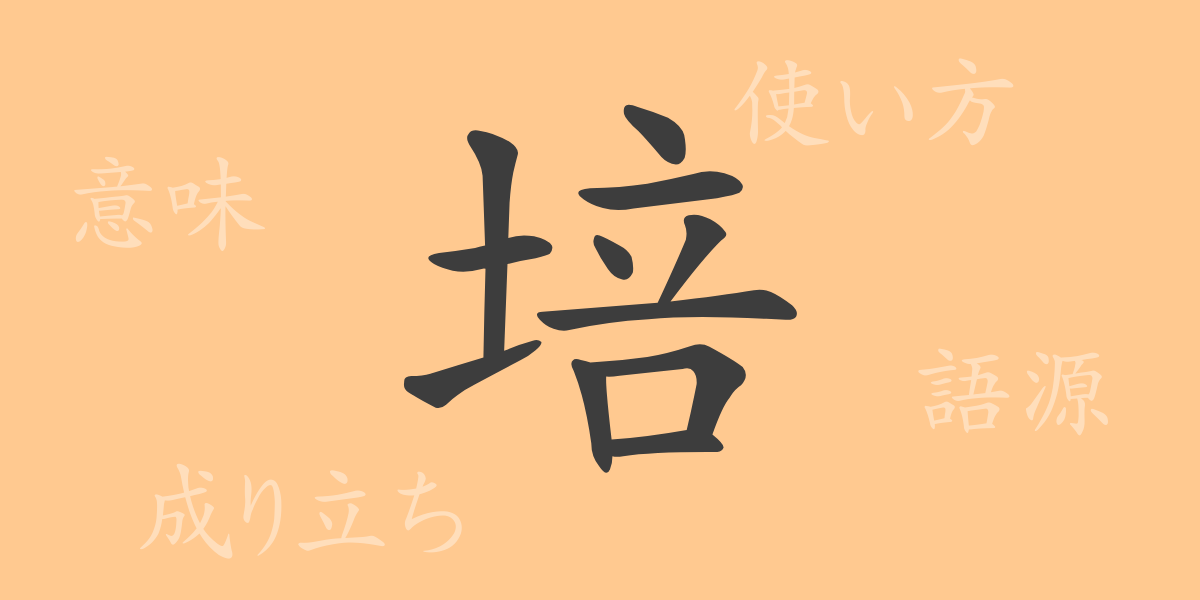Commonly used kanji characters in the Japanese language, known as “常用漢字 (じょうようかんじ, jouyou kanji),” each carry their own unique history and meaning. In this article, we focus on one such kanji, “培 (ばい, bai),” and delve into its deep background. From its origin and usage in Japanese education and culture to its role in various idioms and expressions, we explore the significance of this important kanji character.
The Origin of 培 (ばい, bai)
The kanji “培 (ばい, bai)” is derived from the concept of cultivating crops. This character is composed of the radical “土 (つち, tsuchi)” which means “soil,” combined with “倍 (ばい, bai),” which signifies “multiplying” or “increasing.” In ancient China, where agriculture was a fundamental part of life, “培 (ばい, bai)” became a symbol for the act of tilling the soil and nurturing crops, embodying the importance of agriculture in daily life.
The Meaning and Usage of 培 (ばい, bai)
The kanji “培 (ばい, bai)” carries meanings such as “to cultivate,” “to nurture,” and “to foster.” Beyond its agricultural roots, this character is used to describe the nurturing of talents and skills in a broader sense. For example, phrases like “人材を培う (じんざいをつちかう, jinzai o tsuchikau)” meaning “to cultivate human resources,” or “技術を培う (ぎじゅつをつちかう, gijutsu o tsuchikau)” meaning “to nurture skills,” imply a careful and time-consuming process of development.
Reading, Stroke Count, and Radical of 培 (ばい, bai)
Here are the reading, stroke count, and radical of the kanji “培 (ばい, bai)”:
- Reading: On’yomi (音読み, on reading) – “ばい (bai),” Kun’yomi (訓読み, kun reading) – “つちかう (tsuchikau)”
- Stroke Count: 11 strokes
- Radical: 土部 (つちへん, tsuchihen) – the “soil” radical
Common Idioms, Proverbs, and Phrases Using 培 (ばい, bai)
The kanji “培 (ばい, bai)” appears in many idioms, proverbs, and phrases in the Japanese language. Here are a few common examples:
- 培養 (ばいよう, baiyou) – Cultivation, often used in the context of growing cultures or bacteria.
- 培土 (ばいど, baido) – The act of tilling and enriching the soil.
- 培う (つちかう, tsuchikau) – To nurture or foster over time.
- 根を培う (ねをつちかう, ne o tsuchikau) – To deepen relationships or connections over time.
Summary of 培 (ばい, bai)
The kanji “培 (ばい, bai)” originates from agricultural practices but has expanded to encompass the broader concepts of nurturing and fostering in various fields. Understanding the history and cultural background of this character deepens one’s comprehension of the Japanese language. Through this exploration of “培 (ばい, bai),” we gain a renewed appreciation for the rich stories embedded within each kanji character we encounter in everyday life.

























